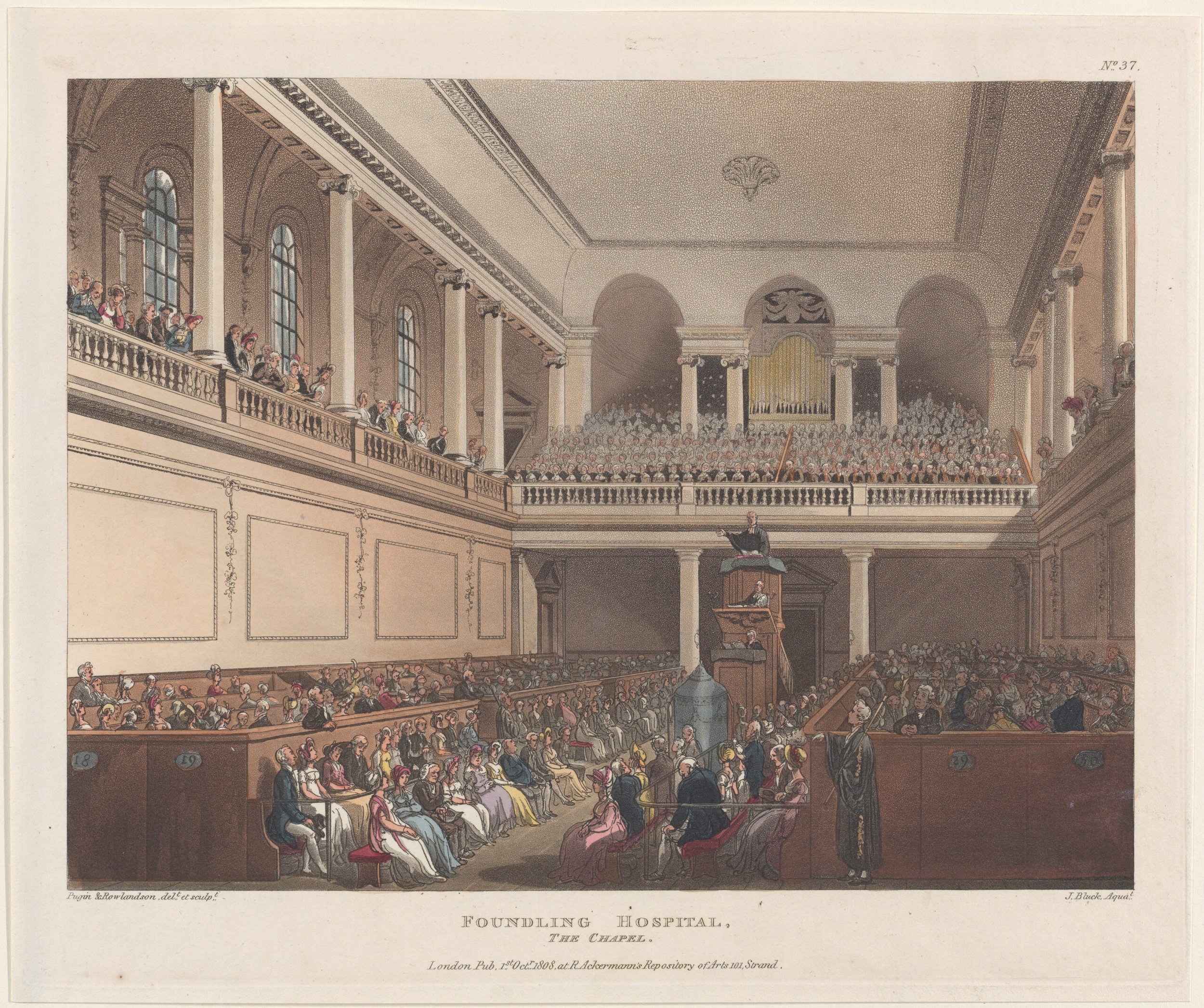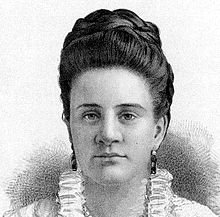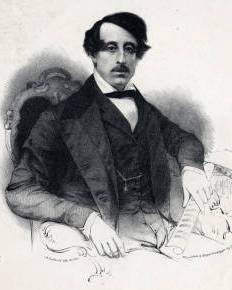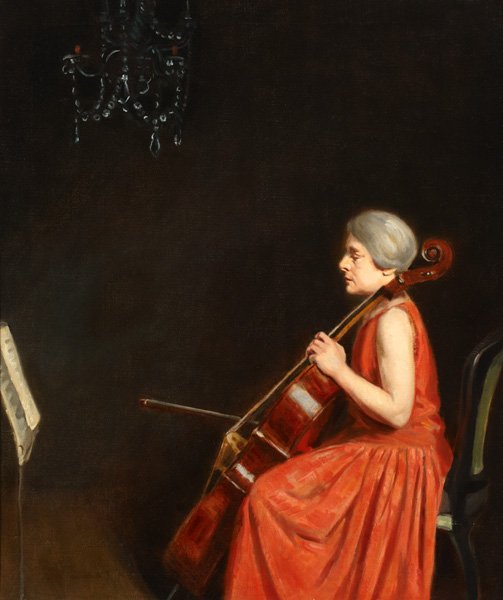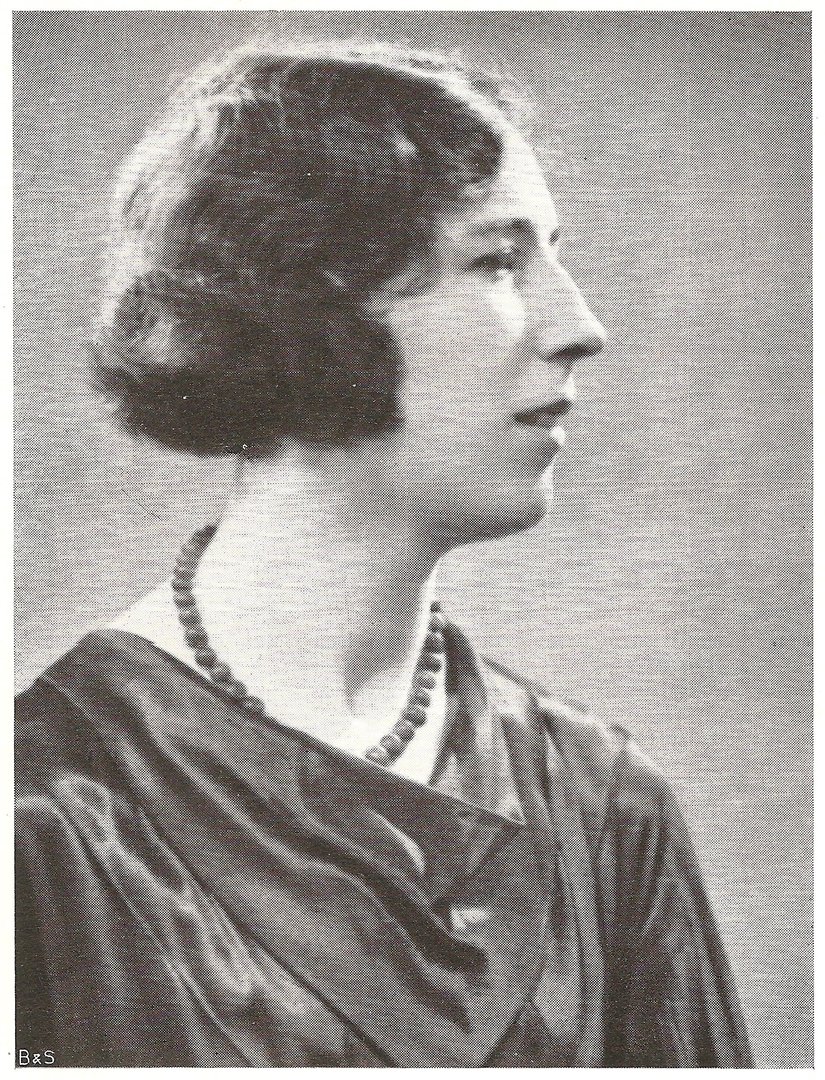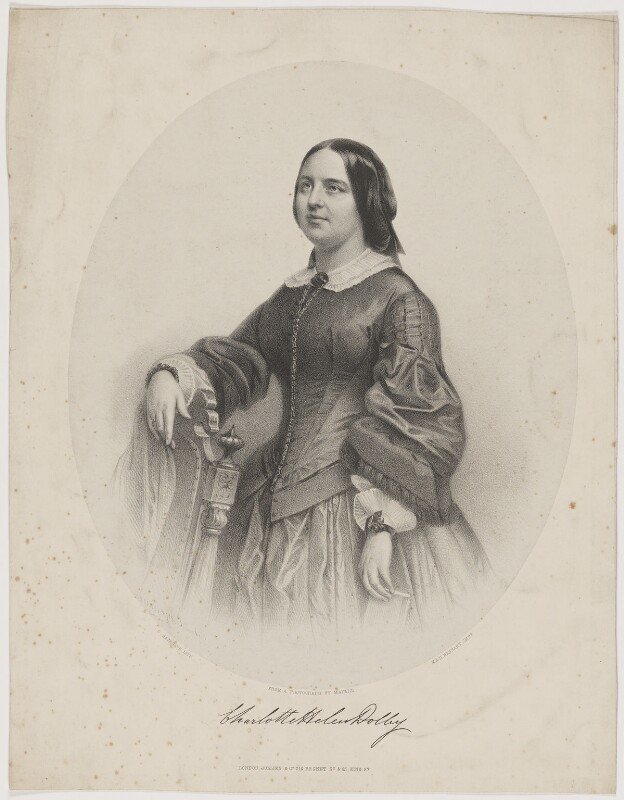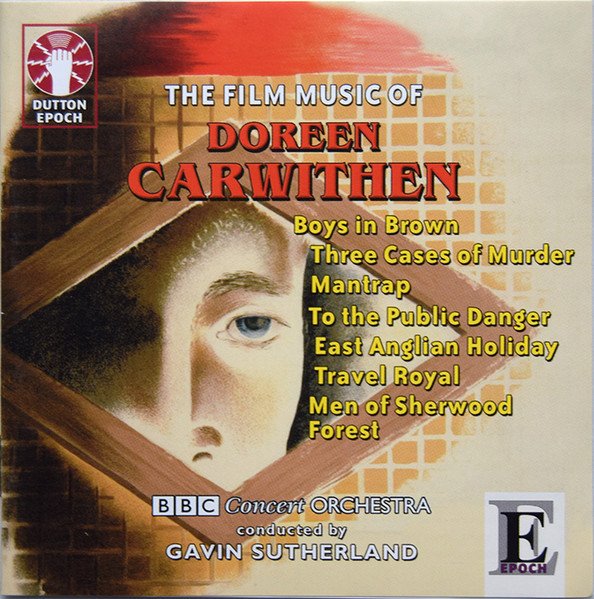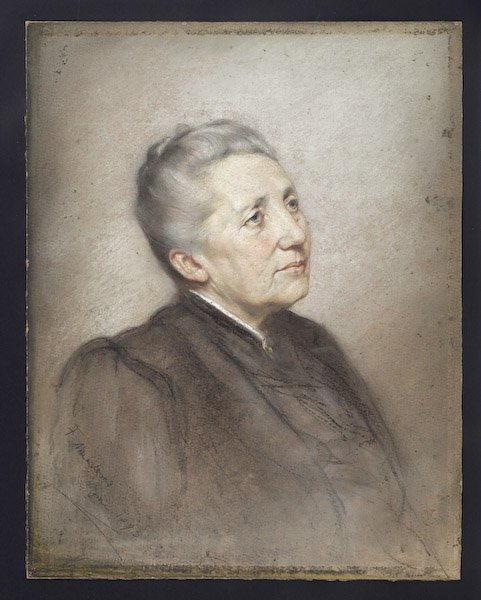Writing Women In: Sophia Turner and the year was 1829
Of the eight girls who entered the Academy in 1829, almost all had ‘retired from the profession’ by 1837, when the list of ex-students of the Academy was published. Only three seemed still to be earning their livelihood through music, and Sophia Turner was the only one who appeared still to be performing, as a ‘very talented Vocalist.’
That little phrase ‘retired from the profession’ does not mean that the girls thus described over the years were any less talented than their still-working contemporaries, (or even in some cases less engaged with music, which we’ll see in coming weeks). For example, pianist Lydia North was a bit of star during her time at the Academy, receiving medals for her studies, being permitted principal study professors in all her instruments, and playing a Hummel concerto in one of the public concerts. She even composed a ‘quartett for piano, violin, tenor and violoncello which reflects the highest credit upon her.’ The Academy requested her to come back as an assistant professor in 1836, but she had already ‘retired,’ despite her father’s letter to the committee expressing his ‘sense of the advantages which Miss North has derived from her instructions at the Academy.’ What these advantages might have been, we can only guess.
Sophia Turner, on the other hand, had a longer relationship with the Academy. She entered in April 1829 at the age of 18, as an ‘out’ student with singing as her principal study. Within a few months she has been appointed a sub-professor of Italian. She was put in charge of ‘those young ladies who have made the least progress’ – hopefully being permitted to be on the rota for occupying the Academy’s box at the Opera would have been at least some recompense for this rather dismal prospect (her designated date of 8 May 1830 means that she would have enjoyed a performance of Rossini’s Cinderella with Mary Anne Paton in the title role). Her own results in examinations over the coming years were excellent. She was permitted to enter ten compositions into the communal album.
Mary Anne Paton
However, all was not entirely well in the relationship between Sophia’s family and the institution. In October 30 her father wrote a letter to the Committee, and while we don’t know what it said, we can have a good guess from the slightly acerbic but still willing reply sent by the superintendent, Frederick Hamilton:
“The pupils of the Academy are bound by the regulations of the institution to assist at all public representations undertaken to promote the views of the establishment, in the present instance of a theatrical representation they are called upon to appear on public, one and all assisting each other in the several departments in which their talents can be rendered useful. A portion of them in the opera now in rehearsal bear the principal characters, the others the less prominent, part of the chorus, but all in all without distinction are assisting each other in forwarding the credit of the institution to which they belong; under the circumstances to abandon a portion of their fellow pupils who take the principal parts would be to withdraw themselves from that aid, countenance and assistance they are bound to give each other, and the institution to which they belong.
Should there be any objection on the part of their parents to their children appearing on the stage, they will be allowed to remain unseen, attended by their governess at the wings, but giving their assistance.”
Clearly, Thomas Turner had a moral objection to his daughter appearing on an operatic stage. His response to the Rev. Hamilton’s letter drew forth a testy official response:
“Sir W Curtis [an Academy director] is decidedly of the opinion that Miss Turner should be compelled to assist with her fellow students in the choruses of the forthcoming operas at the concert room of the Kings Theatre, or cease to be a pupil of the Academy.”
This exchange was part of a wider discussion in the Committee that year around the topic of females on the stage. Such moral objections were not uncommon leading the principal William Crotch himself on occasion to become embroiled in the debate. Crotch had backed a ‘reluctance which the females have shown to going on the stage’ for the second time during his tenure as principal; at the beginning, he admitted that he had ‘endeavoured to persuade the female pupils of the Royal Academy to refuse compliance with the requirements of the Committee who had fully discussed the subject of their appearing as chorus singers on the stage, and determined that there was no impropriety in their doing so.’ Crotch thought that this was ‘an opinion in which I do not stand alone though I may not have a majority on my side, which was that it would eventually be highly injurious to the Academy and was contrary to the wills of the generality of respectable English Parents.’ In Sophia Turner’s case, though, the objection feels as strategic as ethical, given that she sang Italian opera several times in Academy concerts. She would also go on to perform in public around England, although this seems to have been mainly song and sacred music. Still, she was a much-admired singer, and her name was used to sell music, as this advertisement shows.
By 1832 Sophia was an established sub-professor for singing, fielding a large class of pupils. Occasionally parents would object to their girls being placed under one so young and so female, but the Academy would defend their teacher, informing the said parents that she was “an instructress of whom the Committee had the highest opinion” and refusing to move pupils without good cause. Even after ceasing to be a student herself in 1833, Sophia continued to teach until relinquishing her position in October 1834. Having been made an Associate previously, at this point she was uplifted to the rank of Honorary member. A month later she married master cutler Walter Thornhill and her public musical activities ceased. At first she continued to teach, boosting the family income, but soon children started to arrive, and Walter’s business became more successful, and she ceased this as well. Sophia went on to have eleven children and died in 1879. Who knows what role music played in her life after 1834?
From GB-Lam_MS203, Royal Academy of Music students’ compositions. Royal Academy of Music Special Collections
Writing Women In: Mary Postans and the year was 1828
It is particularly odd that Mary Postans (1808-1891) did not feature for Henry Chorley as a musician of merit who had studied at the Academy. As Mrs Shaw, she had the kind of career that made her famous in her lifetime and has kept her memory in the public eye since. One can find several good biographies through an online search, so while I am about to write yet another one, I’m particularly interested in the ways that her career is similar to that of Anna Bishop (Anna Rivière), who had been in the Academy four years before her, yet was seen in such a different light. While Anna Bishop was scandalous, Mrs Alfred Shaw was a model of propriety.
Mary’s father, Thomas Postans applied direct to the Committee for his daughter’s admission to the Academy, and she was admitted in October 1828 to study singing, Italian, harmony, harp and piano. She did extremely well in singing, being chosen for solos in the public concerts within a year, but the other subjects were clearly neither of interest nor to her talents – a note after the July examinations of 1830 found her progress in harp, piano and harmony ‘very unsatisfactory (censure particularly)’. No good conduct prize for Miss Postans, unlike Miss Rivière several years previously. Despite this more general disappointment, she was first for singing in 1831, winning the silver medal. Mary was a contralto. Her repertoire was mostly Italian, ranging from composers such as Rossini and Spohr to fellow-student attempts to emulate the ‘Italian’ style. Her Handel interpretations also seem to have gained particular praise; when she sang ‘He was despised’ in April 1830, one paper commented that it had been ‘sung in a style remarkably well adapted to give the melancholy song its true effect.’ Mary appeared in almost all the concerts mounted during her studentship, eventually usurping students who had been at the Academy longer, a deciding factor in Anna’s decision to leave in 1828, when she felt she was not being offered sufficient opportunity to showcase her voice. Mary left three years later, departing almost immediately for Italy, where she studied for three years with superstars Velluti and Catalani. Her return to British shores was showcased in a concert at the Hanover Sqaure Rooms, in aid of the Royal Academy of Music:
“The only novelty was the first appearance of Miss Postans before a public audience. This young lady was, we believe, originally a pupil of the Royal Academy of Music, but she has for these last three years been in Italy under the first masters, and has been indebted to the aid of Madame Catalani for her proficiency and excellence. Miss Postans possesses a contralto voice of considerable power and compass, and sings with a spirit and execution which predict most favourably for her future success; she was received with the unqualified applause of her auditory.”
It would be a decade before Anna followed in her footsteps and travelled to Italy.
Up until this point, Mary had been performing under the name of Postans, but her marriage to artist Alfred Shaw saw her change her name to Mrs Alfred Shaw. This union was to have an enormous impact on her career, although quite differently from the impact that Anna’s marriage to Henry Bishop did for her. Not many years after the wedding, Alfred became ill and was eventually declared insane and consigned to an asylum. Mary continued to be an active performer, even after the birth of her children, travelling around Britain and Europe to appear in concert, oratorio and opera. She was extremely successful in the 1830s and early 1840s, being greeted with warm reviews:
“It is with feelings of the deepest delight that the British public must hail the brilliant star that has arisen to illuminate the musical world— the Arsace of the evening, Mrs. Alfred Shaw. With a contralto voice of great depth and softness of tone, the purest intonation, the most distinct enunciation, and the most finished taste, delicacy of style, and skilful execution, she unites a perfect dignity of manner, with refined and intellectual grace of action. The singers of the present day have, in a great degree been content to sacrifice feeling and expression to rapid and brilliant execution. They have sought rather to surprise than to interest their audience. The recitative has been slurred over, the andante disfigured with ornament, and the standard of perfection reduced to mere mechanical practice and dexterity; but Mrs. Alfred Shaw has appeared amongst us as a dream of the past – as an echo of the never-to-be- forgotten Malibran; and I would gratefully acknowledge the pleasure with which I listened once more to that expressive, pure and truly beautiful style of singing I had scarcely hoped to hear again. Her recitative is perfect: every note was firm and true, every word as clear and distinct, as the gesture that accompanies it is graceful and appropriate. There is no ranting – no abruptness – no inequality in her performance; no straining after effect, no contortions of face, no extravagance of action, though her expressive countenance is an index to the character she personates – a bright page on which the various emotions are writ in radiant colours.”
Unfortunately, the enormous psychological strain of her ill husband proved too much for Mary, who began to have vocal problems and eventually retired from the stage at an early age. After Alfred Shaw’s death in 1847 (in the same month as her close friend Felix Mendelssohn, a double blow that exacerbated her vocal strain), she would later remarry and bear another four children. To all accounts, both marriages were very happy, although Mary’s later years were again beset with tragedy and ill-health. She died in 1876 at the age of 62.
Mary is a rare example of a singer who managed to cross socially imposed lines, between music and family or career and domesticity, between ‘English’ and ‘Italian’ singing, without a blemish on her feminine character. Anna did not manage this, in large part because of her life choices, including leaving her children to follow her musical dream. Mary managed to remain within those socially ascribed wifely and motherly roles (for example, her daughter travelled with her) while fulfilling what was actually an ambitious career. As Victorian sensibilities tended to be sympathetic to women ‘forced’ into the provider role by the death or incapacity of a father or husband, one can’t help but wonder how much Alfred’s illness helped her in this.
Click here to listen to Violeta Urmana singing Cuniza’s aria from Verdi’s first opera Oberto, which Mary premiered in 1839, the only non-Italian singer in the cast.
Writing Women In: Emma Stubbs and the year was 1827
When I began searching for Miss E Stubbs, on the 1837 list of past pupils of the Academy as having ‘acted at the Olympic as Miss Sydney. Now deceased,’ I had little idea that such a fascinating and sad story would emerge. Although there is little information as yet to go on, her life is as much about a livelihood and a successful career as any of the others so far and is certainly one of (short-lived) success in the face of real tribulation.
1827 was a quiet year for the Academy, which took in fewer students than in any year yet. Emma, a principal study pianist, was one of them. It’s not clear when she left the Academy (the dates in the 1837 list are not always accurate), but we can certainly surmise that she wasn’t the most stellar student while there. She seems to vanish into the mass of students who took an uneventful path through the system, without being chosen for concerts or prizes or even to enter a counterpoint exercise into the student albums. She predates Potter’s exam reports to the Committee, so there isn’t a record of how she did at those points. Certainly there is nothing to be found on her life between entry and 1831, when she reappeared as the actress Miss Sydney.
There is a clue, however, that those years weren’t easy. Her father was a petty criminal, a thimblerig and card-sharp according to one paper, and at some point in the late 1820s, he abandoned his family to flee to Belgium, where he continued his illegal practices (all the time, apparently, boasting that he was the father of the successful Miss Sydney). This left the family without an income, and one paper saw this as the reason for Emma’s decision to take to the stage: ‘if report be true, she merits public patronage, having come forward in the honourable hope of doing something in aid of her family, who are all females, and have been abandoned by their natural protector to their own exertions.’
As the list suggests, she began her career in the Olympic Theatre, the London theatre that specialised in comedies and that was taken over in 1830 by Lucia Elizabeth Vestris, the first (and supremely successful) female actor-manager in London theatre. Her debut was in January 1831, and there is clearly an Academy link, as she shared the stage with Ernesto Spagnoletti, a fellow ex-student who was happy to use the Academy to advertise himself – Emma remained hidden behind her pseudonym. The reviews of her appearance in the burletta ‘The Chaste Salute” were excellent although gendered; the piece itself drew oppobrium:
“We must not, however, omit to notice the first appearance of Miss Sydney in this piece, a young lady of very powerful attractions, whose lovely person strongly reminded us of some twenty years since, when Vestris herself first bloomed forth to our admiring eyes, a perfect model of the Venus Calipyga. The fair debutante’s acting is very much in the style of Jenny Vertpre, and in faith, Madame must keep a watchful eye upon her aid-de-camps, or there will be more sighs than our own for a chaste salute from such lips. We hope to see her shortly in a part better suited to her talents.”
Another review offered even more lyrical length, although perhaps a clue to why the young Emma was not particularly noticeable during her time at the Academy:
“A young lady (Miss Sydney) made a most successful debut at this Theatre last night. From the way she was announced, we were almost at a loss to know whether she was altogether new to the stage, and yet it appears she is so. We will, however, venture to predict, that the profession which she has embraced, will not find her one of its least ornamental members. Her figure is petite, with an elegantly proportioned form, and she possesses a countenance of great sweetness. Of this lady’s powers, as a first-rate singer, we will not speak; she certainly executed some of the passages in her songs with no inconsiderable effect. We would rather give her the merit, from her performance last night, of a good actress. She played the part assigned to her in the amusing burletta, called the Chaste Salute, with great liveliness, and her exertions were liberally rewarded by a crowded audience, who expressed great delight at her exertions, and with the gay and lively acting of the fair debutante. Miss Sydney will very shortly require from us a more extended notice. It is impossible we can judge fairly of the powers of an actress on her first appearance, when she labours under embarrassment and hesitation (though not perceptible to any extent in Miss Sydney’s instance) yet undoubtedly operating. We never recollect to have seen a debut that promises better; and we think this young lady will prove a high ornament to the London stage when time has matured her powers. […] We shall follow this young lady’s performances with high hopes, as we are certain, after her reception last night, she will not disappoint our sanguine expectations of her future excellence.”
Miss Sydney remained at the Olympic through 1832, also appearing at the Haymarket. Comedy seems to have been where her talents lay; an attempt at The Merchant of Venice at the Theatre Royal in Covent Garden in September 1832 was received at best with lukewarm enthusiasm, and at worst with blunt advice for her to ‘take a few lessons in elocution; at present she is totally incompetent to do justice to the lines of Shakespeare. Blank verse and Miss Sydney are, we fear, not upon speaking terms.’ Nevertheless, the following year she had a season at the Royal Victoria Theatre, where reviews again were good. Often these reviews spoke of her looks, sometimes describing her figure in lurid terms, and even rating them above her acting ability.
Emma Stubbs vanishes from sight again in 1834. Perhaps she tried her luck in Paris, for it was here that she died on 19 May of that year: ‘Miss Sydney, who made her debut at the Olympic Theatre a few years back, and whose beauty proved no small attraction to the gay Lotharios of the day, died in Paris a few days ago of inflammation.’ She was buried in the Père-Lachaise Cemetery. Emma Stubbs has remained unearthed until now, and it is to be hoped that this small biography goes some way towards acknowledging her and her talents.
Writing Women In: Catherine Lloyd, and the year was 1826
Catherine Lloyd joined the Academy in 1826 under the articles scheme. This allowed talented musicians who could not afford the fees to study at RAM, allowing the institution to take at least part (and usually all) of their professional fees as payment for their education. Catherine was to be articled for three years; in the end, it was for only two. Underneath the slightly convoluted negotiations undertaken on her behalf by her guardian James Taylor and the Academy that are chronicled in the committee minutes one can sense a musician with little control and a growing sense of desperation of what is being asked of her. It’s interesting, too, to see the difference in her treatment from that of her contemporaries the Childe sisters.
It all started rather well – Catherine was going to attend the Academy as an extra student, articled for three years. She appeared in external concerts, for which the Committee negotiated her fee, and she was busy within the institution as well. She sang several Handel arias (a composer for whom she gained a particularly high reputation) in Academy concerts at Hanover Square Concert Rooms, as well as some Italian opera. She even won second prize for singing in 1827. But then in 1828, there was a request from James Taylor that she be released from her articles, to remain a student of the Academy under the same conditions as those who were non-articled. The Committee appear not to have taken this well. They demand that Miss Lloyd pays full fee for the two years she has already had, as well as paying in advance for future studies.
It's worth remembering here that articles meant that a singer had little control over what or where she sang. She could be asked to sing full roles, or take part in a concert at short notice. And while the Academy was often careful about ensuring that engagements did not harm the voices of its young students, the balance of this with the prospect of fees for the financially-straitened institution was not always in favour of the musician. One has to wonder if Miss Lloyd found it all a bit much. It is also noticeable that the demand for her to make good her debt was quite different from the tone adopted around the Childe sisters’ inability to pay.
An important factor in Miss Lloyd’s request to be freed from her articles was doubtless her engagement at the Foundling Hospital: ‘the Secretary of the Foundling Hospital acquaint[s] the Committee that the Governor of that institution had resolved to engage Miss Lloyd to sing in their chapel, at a salary of forty guineas per annum and that she would be required to commence her duties on Sunday next.’ This of course meant that Catherine would not be as available to fulfil any other performing obligations, both due to time but also vocal resilience. The committee, sensing fee settlement possibilities, approved the position, and thereupon expended rather a lot of energy chasing Miss Lloyd for a portion of her income.
It is not clear when Catherine left the Academy, but between 1828 and 1832 she had a busy performing schedule around the country, to extremely good reviews. Frequent mention was made of her ‘rich, full-toned’ sound, and her extensive compass. She was engaged by the Concerts of Ancient Music in 1831, and the papers reported that ‘Miss Lloyd’s voice is peculiarly fine, its tones are dulcet, rich and powerful. Her intonation is perfect, and she imparted to the air allotted to her great expression and feeling. She appears to understand the true style of Handel, which no doubt has been imparted to her from her instructor. This young lady will prove a valuable acquisition to these concerts.’ She also appeared in Brighton, where the review was even more enthusiastic, although noting some room for improvement:
“The principal attraction of the vocalist was Miss Lloyd. She sang the scena “Softly sighs” from Der Freischützto the delight of all present. The tender pathos which she infused into the ballad “Alice Gray” won the enthusiastic plaudits of the audience; and she was not less successful in the aria of Rossini, “Di piacer”. Her voice is of a magnificent description; it is clear, full-toned, and remarkably mellifluous. Her taste too is excellent. In execution she is not so finished; great improvement in that particular has, however, taken place since she visited Brighton last year: by practice she may make herself thoroughly mistress of that essential to complete the finished singer.”
Unfortunately, the usual course of events put a stop to this promising career. At some point in the early 1830s Miss Lloyd became Mrs Johnson and retired from the public stage. Any activities she may have undertaken in private musical spheres remain invisible. The upside to her marriage, however, was that her husband, clearly a good earner, was able to clear the remaining debt to the Academy of £23.2.0, and Miss Lloyd finally exits the minutes of the Committee of Management. It’s unfortunate that a musician with such obvious talent also exits music history. If she had been able to continue as a singer, she may even have made Henry Chorley’s shortlist of eminent musicians forty years later.
Writing Women In: Ann Childe, and the year was 1825
When the Academy started in 1822, English society at large was shocked. While it was great to have a musical education college in the country, what on earth were they thinking, taking in girls and boys at the same time?! Imagine what would happen!
So the Academy, with its 1822 head on, created separate departments for female and male students. That should do it!
Except of course, teenagers will be teenagers, however, no matter what era, and in his memoirs, ex-student Lindley Nunn recalled the futility of it all: ‘It will hardly astonish my readers to learn that matrimonial alliances were the rule rather than the exception, brought together as the students were – meeting daily in the common Entrance Hall, at Rehearsals and Concerts, and not infrequently elsewhere (contrary to the rules, I am afraid).’ Singers Ann Childe (1811-1888) and Arthur Edward Seguin (known as Edward) (1809-1852) were a particularly well-known and successful example of this (despite having to overcome a particularly salacious episode of bad behaviour in Edward’s studentship). Both Ann and Edward were vocal stars of the Academy, probably the one thing that kept them in the Academy despite the afore-mentioned bad behaviour and, on Ann’s part, an apparent complete inability on the part of her family to pay the fees.
Arthur Edward Seguin
Ann, the eldest of three Childe sisters to enter the Academy, passed the audition for her studies as a singer in 1825, alongside Emily, who chose piano for her principal study. Within a year, Ann’s path was clear. She sang in almost every concert, often appearing as a soloist multiple times within the same event, as well as performing in ensembles and duos. The core of her repertoire seems to have been Italian opera, with composers such as Rossini, Cimarosa and Pacini being favourites, while the more ‘English’ rep such as Crotch and Handel being less frequent. By 1827 she was much in demand outside the Academy, not just through requests from Academy teachers for her appearance in their external concerts, but also through institutions such as the Philharmonic Society and Philanthropic Society. All of these requests had to go through the Academy’s Committee of Management, who acceded to every request, although interestingly, the Philanthropic Society’s approval was tempered with the statement that the Committee could not ‘approve of her singing the air assigned to her in the 1st part.’
The Committee’s willingness to allow such constant absence for external engagements was clearly a complicated mix of pride in having a student who was doing so well and a desire to recoup the fee debt that the Childe family were accruing for the two sisters. Ann and Emily’s father James Warren Childe was a painter whose income clearly did not stretch to the required * guineas per year, and the Committee minutes are full of accounts of letters and conversations with him, trying to gauge his ability to pay the fees and suggesting a timeline of payments. At no point was it suggested that the sisters should leave, a testament to their ability and to Ann’s growing fame.
A particularly tricky episode for Ann in the Academy’s history was around its complete break with ex-harp teacher and fraudster Charles-Nicholas Bochsa. I’ve written before about his complicated and rather fast-and-loose relationship with both music and the law that resulted in his dismissal from the Academy, so suffice here to recount his attempt to purloin Ann and other students for his opera company. His first approach to the committee for their services was above board; in 1829 he requested the ‘services of Miss Childe and Brizzi for 6 Italian operas to be given at the theatre at Brighton between 2nd and 22nd November, he having already engaged Miss Bellchambers and Mr E Seguin and Mr A Sapio for the said performances.’ Ann’s father was ‘particularly anxious’ for her to accept the engagement, probably because of the accompanying fee – Ann herself, however, seems to have been less enthusiastic. Indeed, she refused outright to sing the title role in Vaccai’s opera Giulietta et Romeo, and once it was discovered that the engagement was a cover for inveigling the students to leave the Academy altogether, all concerned gave up the whole idea with disgust, citing the ‘malicious and unprincipled designs of Mr Bochsa.’
In all these performances, both within and outside the Academy, it is notable just how many included the services of Edward Seguin as well, and eventually the inevitable happened. The impending nuptials are referred to rather coyly in the Committee minutes, when they advise Ann’s father that they can’t allow her performing fees to pay for sister Maria’s studies, as ‘Miss Ann Childe’s situation in life may very soon be altered whereby her father will not have any claim or control over her services.’ Ann and Edward married in 1832. They continued to perform together in concert, and From 1834 to 1836, she sang in the Italian opera season at the King's Theatre, Haymarket, continuing the repertoire that had earned her such good reviews as a student. Her eldest child Edward was born in 1837 – he too would become a singer – and the following year, on the invitation of American impresario John Lester Wallack, the family set sail for New York, where they would be based for the rest of their lives.
The couple debuted in America in The Barber of Seville in 1839, but it was not long before they founded their own opera company, the Seguin Troupe, which found success across North America. Anne’s obituary summed up this chapter of her life:
“In February 1839 Mrs Seguin made her debut here as Rosina in The Barber of Seville, with De Begnis as Figaro and Mr Seguin as the Doctor. Both Mr and Mrs Seguin were strongly identified with English opera here for many years, but their distinguishing success was achieved in the Bohemian Girl which was first brought out here in 1844 at the Park Theatre with Mrs Seguin as Arline and Mr Seguin as Devilshoof. The opera was beautifully put upon the stage, and the ballet in the first scene, since generally omitted, was made specially beautiful and attractive. It met with extraordinary success not only in New York but throughout the country generally. Mrs Seguin created a sensation that has bever been excelled in lyric art. She sang the part of the Gypsy more than 1,000 times. Mrs Seguin also sang in Amelia, La Sonnambula, Cinderella and various other operas, always achieving unparalleled success.”
This success lasted until Edward’s early death from tuberculosis in 1852. Anne immediately retired from the stage, although she remained active backstage and in her musical salon, as well as teaching. She was an American point of contact for many Academy ex-students who toured in the country – Anna Bishop was one old friend who was delighted to remake her acquaintance when she came to New York. Anne Childe died in 1888, leaving a fortune of over $100,000, survived only by one daughter and a grandson.
Song dedicated to Anne Childe








